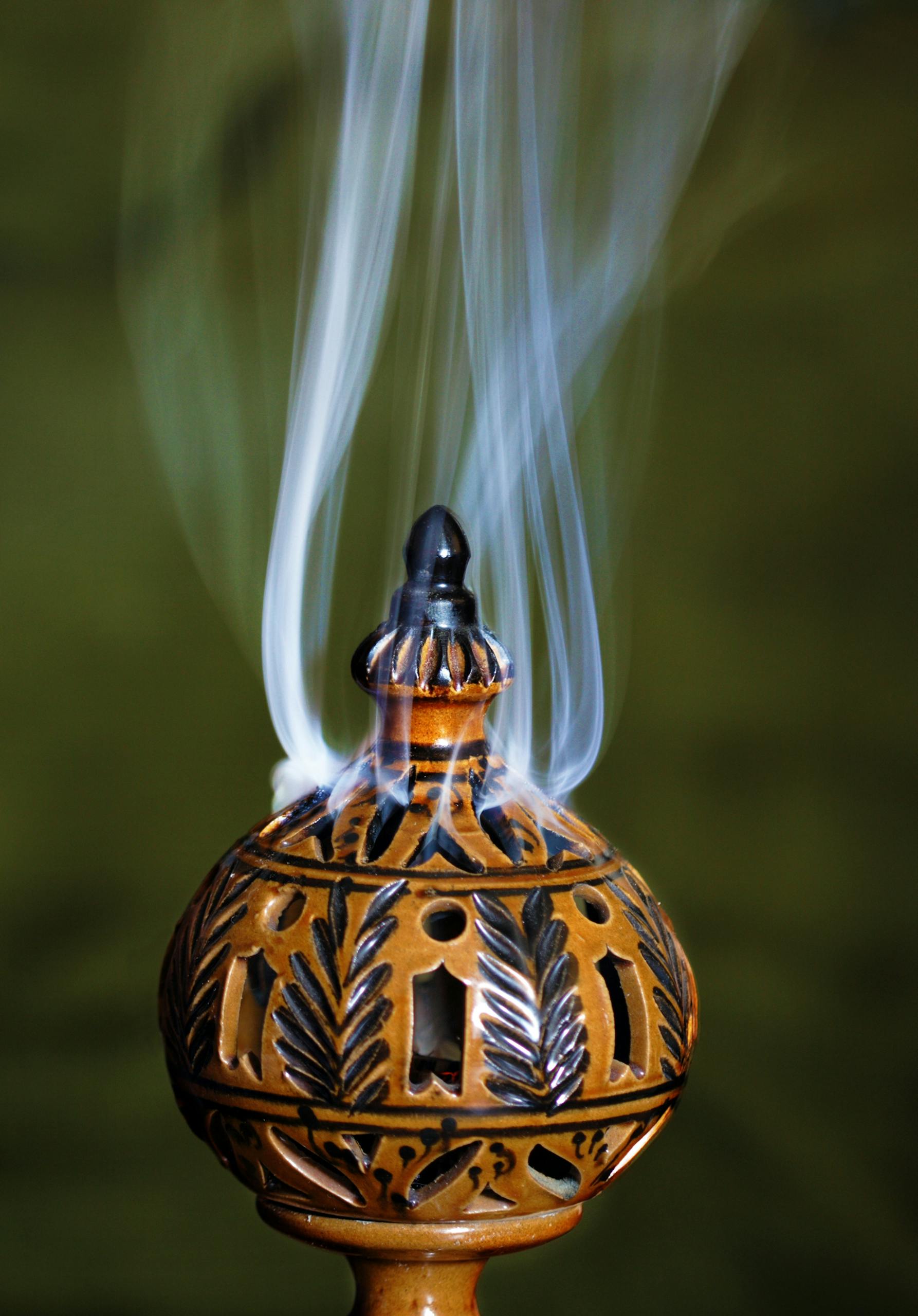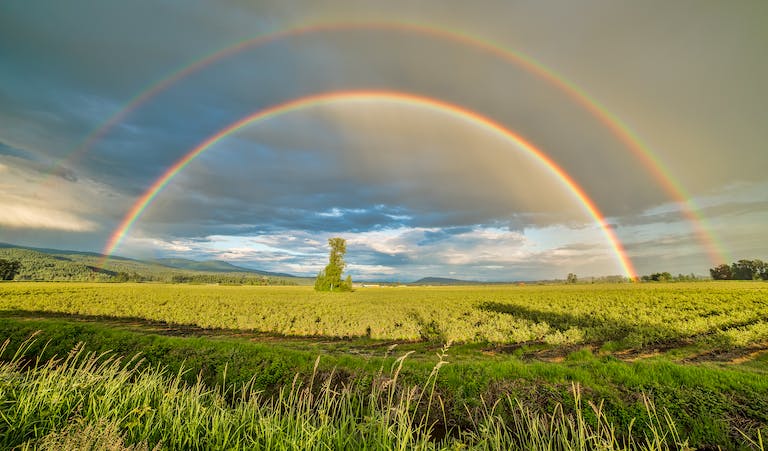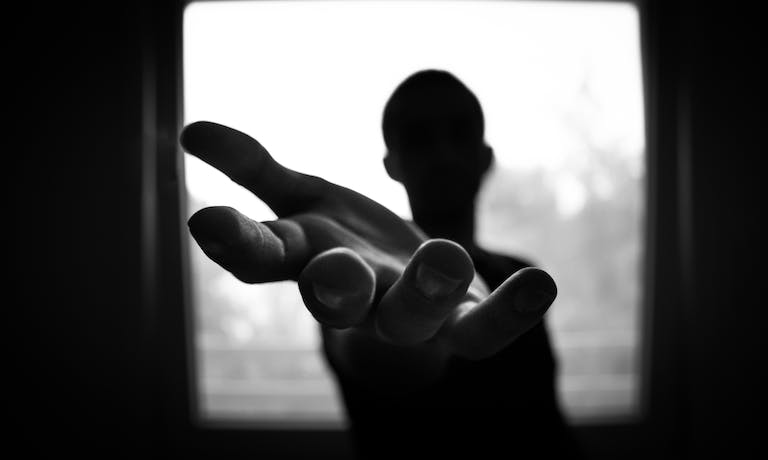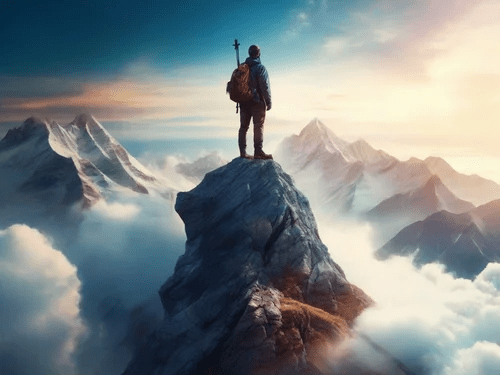Long before encountering Bardon, in the beginning of 2007, I spent six months living in a silent Benedictine-style monastery. Of course, we weren’t totally silent. What was said was only necessary information, and during Sundays, there were talking meals. But the rest of the time, silence prevailed. The deep silence did wonders to calm down any racing thoughts. I could feel my heart rate lowering, my blood pressure descending, my entire body filling itself up in a comfortable levity of Being. Indeed, in retrospect, what strikes me most about the place was the sheer power of God that was contained there. I felt it all the time, like perpetually taking a bath in Divine Providence. It regenerated any aches and pains automatically. It carried with it a much different energy than the world, and when I left it occasionally, to take a break and go in the city, the energy stayed with me, almost as if I had gained a new superpower. That is not to say, though, that the energy of the world felt the same. Indeed, enough time away from the monastery, I would lose the sensation of it, and upon returning, feel it all over again, remembering its deep silent comfort, like the womb of Christ.
Speaking of Christ, this sojourn served in a vital way as a reorientation of all the blocks I had accumulated around Christianity. Indeed, I considered at first going to a Buddhist monastery. Upon graduating college, my gift to myself was to live in a silent monastery, have the experience, and maybe, just maybe, find out if I had a vocation as a monk. But I knew that if I went to a Buddhist monastery to find the Eternal Bliss there, I would always have unresolved issues with Christianity. Even though I didn’t grow up Evangelical per say, I had been toxically infused with a doctrine of hell at some times, growing up in the Bible belt. Jesus Christ, just the name, the image, half-repelled me. I feared a punishing God of the old testament. But I knew, deep down, that I had to wrestle with my childhood faith. Amazingly, these blocks and twists and issues with Christianity almost vanished immediately. Quickly, I learned that the monks and nuns (it was a coed monastery) read Buddhism, New Thought, Taoism, literature and poetry. The Abbot assured me on the first day that they were not overly-pious in an arrogant way. Sure, there was reverence; but there existed a very loose Spirit inside them. By this I mean, simply, that they were not uptight. Ironically, I had never been an avid church-goer in adulthood, but the monastery breathed a different air than “normal” churches did. In short, all of the monks and nuns were tremendously mellow, despite keeping a rigorous schedule.
We went to chapel about six times a day: morning prayer around 6am, the Eucharist/Mass around 7:30 am, then breakfast. After, followed a three hour work period before noonday prayer. Most of the time, I spent this work period shoveling snow, which at a certain point, became quite enjoyable, as I had never lived in a climate of extensive snow. Then, noonday prayer, then lunch. After lunch, it was free time, nap time, reading time, whatever. Most of the monastics stayed in their cell/room. Unless it was your week to cook, in which you spent a lot of the time in between services cooking, preparing food. But as I was not under vows, I never had to cook. At 5:00pm, we had evening prayer, then dinner, then a one hour recreation period, then compline around 8pm, then silent prayer. Each of these services was about 30 minutes long, and except for silent prayer, which was akin to sitting meditation to me, we read the liturgy, sometimes chanting it, sometimes singing it, sometimes just speaking it. At first, I even questioned the Abbot about why they did all that praying. Would it not be more beneficial to do yoga or Tai Chi? However, after awhile, I got hooked into the prayers, and I believe all the constant prayers done as a group and done individually by the monastics in their cell – all these prayers were what infused the place with such dense, Divine Power.
I did spiritual direction with the Abbot weekly, and we got to know each other quite well, or at least it seemed like we did. At first I asked if my presence there was welcomed and if people were okay with it, and he said that, intuitively, they could recognize me as a kindred spirit and realize that I fit with their vibe really well, which was good to hear. Early on, he had me read The Power Of Now by Eckhart Tolle. That book, living side by side with the deep silence I lived in, took me to the next level. Ultimately, through exercises of emptiness, resing in the Now, and undergoing what Christians say is the Way Of the Cross, also mentioned to Tolle, which is to walk forward in surrender and embracing of one’s own suffering, a miniature Calvary for each individual. The life of Christ became a story to reveal: this is how transformation is done, with each mystic’s own crucifixion and resurrection. Eventually, I found the “off switch” to the mind, the end of all internal dialogue, and simply awareness. This now, is something that I found could be lost if not continually practiced. There was something about the silence and glow of the monastery that made the exercises given in The Power Of Now much more effective. The outsid world, unfortunately, is filled with much more noise and clutter. I go into all of this, process by process, conversation by conversation, in the book.
Initially, upon leaving the monastery, the glow of it all faded some, though I would make time to chant the liturgy and practice meditation. It was more of a culture shock leaving the monastery than it was entering it, as most people describe culture shock in general. Sometimes, longing for the womb of the Divine, I would go to Catholic churches that had their doors open, and just sit there, absorbing the energy. Some churches would have more of it than others. I quickly discovered that Episcopal churches and Catholic churches had the best silent energy, though I never attended actual services in these churches of even others upon leaving.
One thing I left out of the book, which almost remains the most profound experience of all, is the time I visited the monastery during Christmas of 2010. It had been three and a half years since I had last been there. There were some new faces, and the old Abbot had left as well as one other. But the energy struck me more strongly than ever. The first night there I was spinning, the energy hitting me from above, straightening out acupuncture meridians, realigning my spirit, psyche, and body. It felt like the archangels were doing surgery on my soul, and I told this to the other monastics there, and they took it as encouragement to keep doing what they were doing. Towards the end of my stay, I had one of the strongest encounters with God ever. When I was in bed for the night, the entire room became filled with God, dense, and packing itself against me, but not entering. I knew it was the call. I was being called to be a monk, and if I agreed to it, God would shoot through me stronger than ever, perhaps I would enter an ecstatic trance or divine union. It was kind of scary actually, the sheer Power that I felt all around me. Should I be a monk? I ended up saying no. I would live in the world, and the energy was still there, but not quite as strong as before, after I answered the question. I often look back on this as what Joseph Campbell calls “the refusal of the call.” However, I often take a lighter look upon it, simply accepting that is was my choice, for better or worse, to live in this world rather than the cloistered life.
You can get my book here, and if you do, please leave a review on Amazon.




